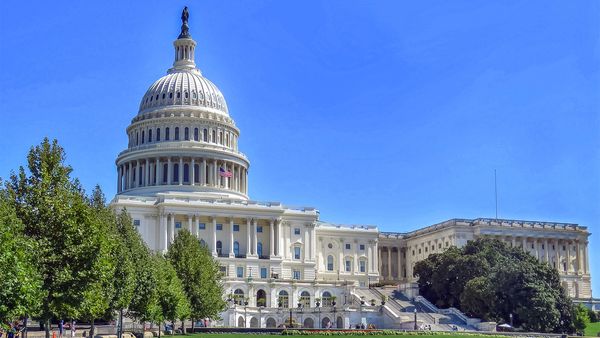Lottery tickets cost so little and they promise so much. You've heard the phrase "a dollar and a dream." That idea causes so many people -- many who don't actually have a dollar to spare -- to buy lottery tickets in hopes that they might win and change their lives.
It's a fantasy and nothing more. You're not going to win the lottery and buying tickets is essentially throwing money away.
The lottery has essentially operated as a tax on people who can ill afford to waste even a few dollars a week. And that's why Raising Cane's Chief Executive Todd Graves's purchase of $100,000 in Mega Millions tickets for his employees sets a terrible example.
Yes, the jackpot had reached $810 million, but having 50,000 of the $2 tickets still leaves your odds of winning at essentially zero.
Graves, by most accounts, is a caring employer who pays strong wages by fast-food standards, but his attempt at a kind gesture teaches his employees exactly the wrong thing.
That $100,000 would, for example, go a long way as an employee emergency fund to help people with rising rents or unexpected medical emergencies.
Spending that money on lottery tickets, where your chances of winning are astronomically low, sends a decidedly irresponsible message to the chain's employees.

Image source: Rasing Cane's
How Bad Are Your Odds of Winning the Lottery?
The problem with using the lottery as a fun way to take your shot at getting rich is that nearly anyone could use that money to get richer the slow, boring way.
Investing is not only for the rich -- a small amount of money invested regularly plus time can produce meaningful wealth.
Consider: If you invest $50 a week in a Dow Jones index fund, you're putting $200 away each month. At a 7% annual rate of return over 30 years, that small investment returns nearly $244,000. If you actually earn the 9% that the Dow averages on a 15-year basis, you will have $366,000.
When you work at a fast-food chain, even one that's on Glassdoor's Best Places to Work list like Raising Cane's, every dollar in your budget is likely to matter.
That's why buying lottery tickets isn't "a dollar and a dream." It's throwing away money that over time truly could make you wealthier.
To truly understand how wasteful lottery tickets are, you need to look at the odds, which GoBankingRates broke down.
"Here’s the cold hard truth when it comes to the lottery: For one of the most popular lotteries in the United States, Mega Millions, your odds of winning are about 1 in 176 million," the personal finance website says.
"If you’re playing a single-state lottery, like the California Super Lotto, your odds increase — to 1 in 42 million. While on paper that might seem like a major increase in your odds, 42 million to 1 is still awfully close to zero."
Playing the Lottery Is Wasting Money
Employers don't generally teach financial literacy, but they should at least set a good example.
Graves was clearly trying to do a nice thing for his employees -- his heart is in the right place -- but his efforts reinforce the idea that playing the lottery is a fun way to bet on your future.
It's not. The numbers overwhelmingly say you're not going to win.
"Lottery players often claim that the ticket they buy has the exact same chance of winning as any other ticket — and that’s a mathematical truth," GoBankingRates adds. But "it doesn’t address the larger, more important mathematical truth that each ticket has basically no chance of winning."
Raising Cane's, based in Baton Rouge, La., has been a leading employer in a space not known for treating employees well. Graves clearly cares about his workers, but buying them lottery tickets reinforces harmful financial behavior.
Buying lottery tickets -- and not understanding the long-term value of a dollar -- has kept tens of millions of Americans from taking the slow, painful steps to guarantee their retirements.
(And no one won the Mega Millions jackpot on July 26. So Graves wasted $100,000 that could have benefitted his employees in so many ways.)







